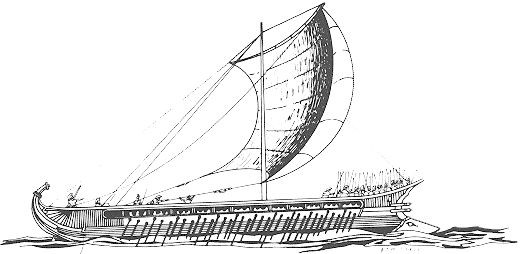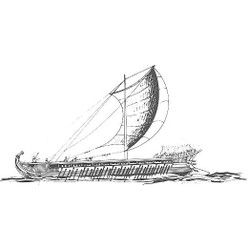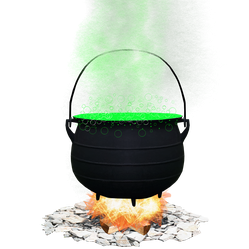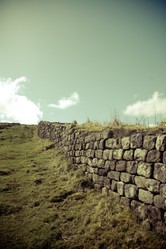The morning of the battle dawned. Xerxes climbed to his golden throne, and at the same moment the first of the Persian ships sailed into the Straits of Salamis, to begin the battle. As they entered, the wind rose, and at once the heavy ships became difficult to manage. Themistocles, the Greek general, saw this, and gave the signal to attack at once.
No sooner had the battle begun than the Greeks saw how wise they had been to stay in the narrow Straits and fight the Persian fleet there. The Persian ships soon jammed against one another and could not move. The Greek ships, smaller and lighter, found it easy to row up and ram them. Ship after ship of the Persians was sunk in this way, for the unhappy enemy could not take their vessels away because of the numbers of their own ships pressing into the Straits from behind.
The crash of the iron ramming-heads was heard all day long. Shouts and groans, the gurgle of water, and the creaking of jammed ships floated up to the ears of the watching Persian King. He saw dozens of his ships sink and disappear. He watched them crush each other, fill and go down to the bottom. He saw the light little Greek ships sail here and there, and ram mercilessly. It was the worst day of his life.






 Zujavaon 12/24/2011
Zujavaon 12/24/2011
 Budgeton 08/13/2011
Budgeton 08/13/2011
 Diceon 07/20/2011
Diceon 07/20/2011
 The 300 Spartanson 06/22/2011
The 300 Spartanson 06/22/2011



Comments
Wonder why I never heard this in school? Makes for a great history lesson.
If you missed it, there's a prequel to this Wizzley article: http://wizzley.com/the-300-spartans/